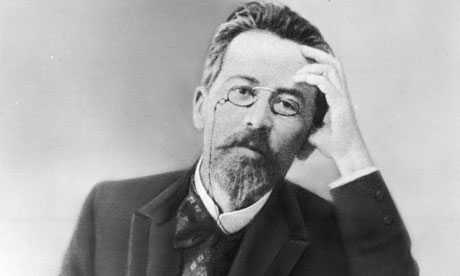Browning: “the poet, not the automatic”
Reading Time: 2 minutes.

Does reading literary fiction really increase your social intelligence? Here: I Know How You’re Feeling, I Read Chekhov
Maybe. But what about crime fiction?

A little Raymond Chandler increases the social intelligence you really need. The best crime fiction illumines sin, salvation and manners as well as Chekhov.
See this 1977 essay on Chandler by Clive James: The Country Behind The Hill
‘In the long run’, Raymond Chandler writes in Raymond Chandler Speaking, ‘however little you talk or even think about it, the most durable thing in writing is style, and style is the most valuable investment a writer can make with his time.’ At a time when literary values inflate and dissipate almost as fast as the currency, it still looks as if Chandler invested wisely. His style has lasted. A case could be made for saying that nothing else about his books has, but even the most irascible critic or disillusioned fan (they are often the same person) would have to admit that Chandler at his most characteristic is just that – characteristic and not just quirky. Auden was right in wanting him to be regarded as an artist. In fact Auden’s tribute might well have been that of one poet to another. If style is the only thing about Chandler’s novels that can’t be forgotten, it could be because his style was poetic, rather than prosaic. Even at its most explicit, what he wrote was full of implication. He used to say that he wanted to give a feeling of the country behind the hill.
. . . .
Marlowe can be hired, but he can’t be bought. As a consequence, he is alone. Hence his lasting appeal. Not that he is without his repellent aspects. His race prejudice would amount to outright fascism if it were not so evident that he would never be able to bring himself to join a movement. His sexual imagination is deeply suspect and he gets hit on the skull far too often for someone who works largely with his head. His taste in socks is oddly vile for one who quotes so easily from Browning (‘the poet, not the automatic’). But finally you recognize his tone of voice.
It is your own, day-dreaming of being tough, of giving the rich bitch the kiss-off, of saying smart things, of defending the innocent, of being the hero. It is a silly day-dream because anyone who could really do such splendid things would probably not share it, but without it the rest of us would be even more lost than we are. Chandler incarnated this necessary fantasy by finding a style for it. His novels are exactly as good as they should be. In worse books, the heroes are too little like us: in better books, too much.